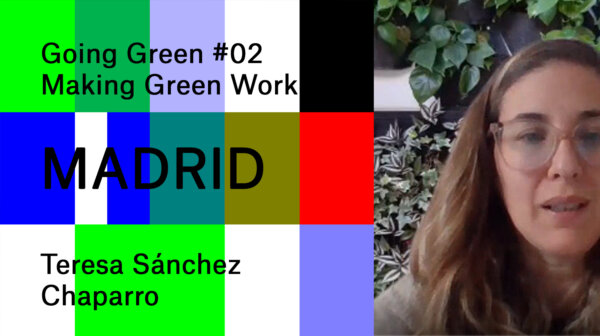Making green work
Going Green #02
European cities are in a race against the clock to become green. How can they collaborate and learn from eachother, to make green work? European-wide sustainability strategies emphasize the integration of healthy ecosystems, green infrastructure and nature-based solutions in urban planning. However, the capacity to deal with extensive urban greening varies across European cities of different sizes. Knowledge exchange and co-creation among countries and sectors are critical for success.
— Uitzending terugkijken
The biodiversity strategy of the European Green Deal (EGD) points at the widely accepted benefits of green urban spaces, ranging from: health, recreation, refuge to nature, and mitigation of climate change, to opportunities for business. By 2030, all European cities with more than 20.000 inhabitants will need to have drafted urban greening plans. The strategy also calls for increasing the share of local organic farming and shifting to circular industry. More importantly, the EGD aims to legally protect at least 30 percent of Europe’s land. Cities will not only need to be greener, but at the same time they will also need to accommodate a growing population and the production of food and goods, within reasonable boundaries.
While planning and financing urban greening is challenging, cities are not on their own. Universities, practitioners, businesses, and other peer cities are already pushing innovations. The issue then is not a lack of knowledge, but rather the creation of new formats of cross-sectoral (inter)national collaboration. These are needed to mainstream best practices of design, strategy and innovative solutions in the built environment. By combining the technological and the social, and the political and the economic, nature-based innovations will play a vital role in the societal transition towards a healthy and zero-carbon urban life style.
Speakers
Victor Muñoz Sanz — Assistant professor of Urban Design, TU Delft
Víctor is a researcher and educator, with a background in landscape and urban design practice in Madrid, Spain. He is engaged in research on productive cities and landscapes in the context of current technological and ecological transitions. He was involved in the projects ‘Cities of Making’ and ‘Automated Landscapes’, and currently leads research on more-than-human ecologies and productive green infrastructures.
Paola Huijding — Senior Urban Planner, Municipality of Almere
Paola has been working at the municipality of Almere since august 2020 as a senior urban planner. She worked as an architect and city planner in Brazil, Germany, Belgium and The Netherlands. She collaborated with the Centre on Sustainable Consumption and Production (Wuppertal) and coordinated the programs on climate change and circular economy with Platform31 in The Hague.
Program
13:00 — Welcome by moderator Sophie Stravens
13:05 — Presentation by Victor Muñoz Sanz
13:25 — Pitch by Paola Huijding
13:40 — Discussion (with participation from the audience)
14:30 — End of session
Statements
During the conversation, the speakers will discuss a number of statements related to the implementation of green practices and sustainable development in cities;
— The EU should make Green Cities its top priority, because no sustainable development goals can be achieved without them.
— Large innovative cities like Madrid and Amsterdam should actively share their tips & tricks with smaller cities, for free.
— Cities are not islands: they can’t become truly green by themselves, they need each other.
International contribution
watch videos (duration 5′):
Lorena Bello Gómez, lecturer at School of Architecture + Planning MIT, interviewing Amy Whitesides, Studio Director in the Boston office of Stoss Landscape Urbanism and Design Critic at the Harvard GSD.
Teresa Sánchez Chaparro, scientific director, Innovation and Technology for Development Centre, Universidad Politécnica de Madrid.
About the program
This program is part of ‘Going Green’. A series of six online talks on the topic ‘Growing Green Cities’ organized by Vereniging Deltametropool in collaboration with the Province of Flevoland. The program is a warm up for Floriade Expo 2022 and builds up on the knowledge network of the event. The talks are moderated by Sophie Stravens and documented in a series of chronicles, written by Sanne van den Breemer. The program is broadcasted live from the Floriade Expo 2022 site in Almere (Food Forum pavilion, Province of Flevoland)


